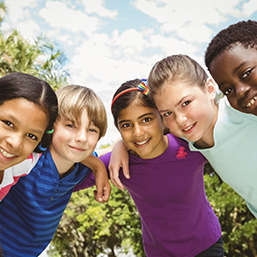



We all want our children to succeed; show me a child trying something new, and I'll show you a parent anxiously hoping for the best. What that best looks like varies from home to home and family to family, but the desired outcome is the same - we want our children to experience happiness, success, and joy. This means that, at some point, our children will have to navigate difficult or uncomfortable situations requiring our children to be little leaders. But are leaders born or made? Regardless of the answer there are things we can do as parents to help develop those skills and prepare our kids for when that time comes.

When families are restructuring, there are many important details that must be decided. Brains are working at answering questions about timelines, custody, homes, court dates, and finances. For a while, the focus on the logical may enable a numbing or postponement of the adult emotions. This is likely not true for the children; their emotions may be right at the surface.
It is impossible to predict the feelings that a child will have at any point during the separation and divorce, and for many years after. One thing we do know is that even if children do share their initial feelings, it’s normal that their reactions to and feelings about the divorce will transform as they get older and look at it in different stages of their development.

“Be a good friend!”
What is in a ‘good friendship’? Friendships are tricky! Children must have the skills to manage and maintain the good moments, while also being able to navigate the inevitable issues that will arise (let’s be honest, even adults struggle with the issues of friendships sometimes!).

When you think of success in adulthood, what do you think of? The answer to this question may be different for everyone, but there are likely some common themes that arise. A successful adult can function independently and plan ahead; has self-control during triggering situations; can create a healthy, daily routine and remember important details and tasks; problem solve and goal plan effectively; and can be flexible and adapt to challenges or changes within their environment. All these skills are what conventionally and in a foundational way define a “successful adult,” also known as executive function skills.
Calgary’s Child Magazine © 2024 Calgary’s Child